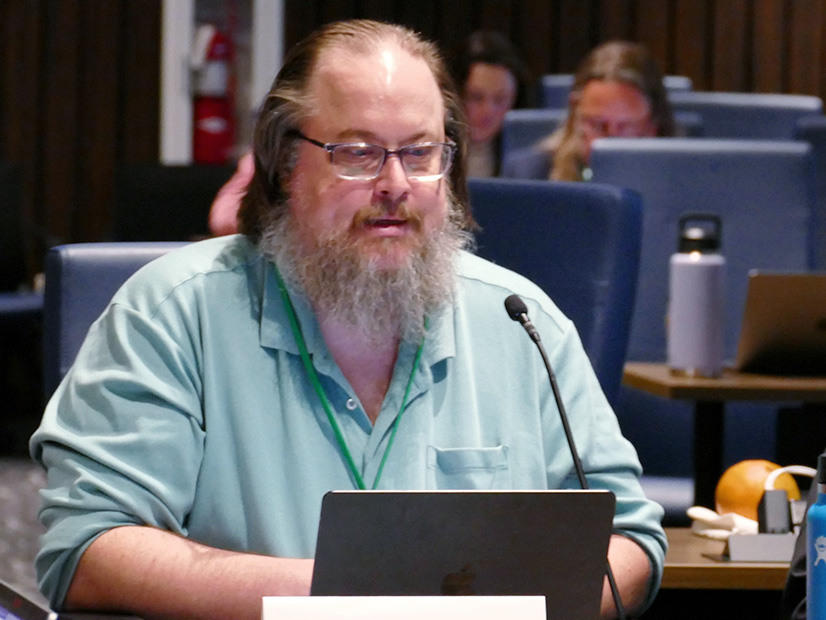
Several renewable energy developers have indicated they will oppose ERCOT stakeholders’ approval of a controversial rule change for inverter-based resources (IBRs) when the issue goes to a vote before the Board of Directors later this month.
Invenergy Energy Management, NextEra Energy Resources, Southern Power, Avangrid Renewables and Clearway Renew — the ad hoc “joint commenters” who have argued against the change — on June 10 filed a recommendation to oppose, urging the board to reject the revision to the Nodal Operating Guide (NOGRR245) during its June 17-18 meetings.
ERCOT’s Technical Advisory Committee endorsed the rule change June 7 after months of trading and reviewing comments with staff. It would impose voltage ride-through requirements on IBRs, aligning ERCOT’s protocols with NERC reliability guidelines and the most relevant parts of the Institute of Electrical and Electronics Engineers’ standard for IBRs interconnecting with the grid. (See ERCOT TAC Endorses Rule for Inverter-based Resources.)
The committee inserted gray-box language with potential modifications that wouldn’t become effective until March 2025. The language would enable entities to meet the applicable ride-through requirements when they have not yet added a “technically feasible” change. The revisions are aimed at those entities for which upgrade costs are less than 40% of the full, in-kind replacement cost of a plant’s inverters or turbines and converters.
The joint commenters agreed there is a sense of urgency to impose the standards and make them effective for IBRs. However, they urged the board to ensure that the ride-through standards “do not have the unintended consequences of harming reliability by eliminating existing generation and harming future investment in infrastructure in the ERCOT market.”
The commenters said TAC attempted to defer issues around hardware changes by placing them in the gray-box language, but that the action did not accomplish anything.
“The gray box simply indicates that hardware changes contemplated by ERCOT would be required unless a new NOGRR modifies such requirement before the gray box becomes effective,” the commenters wrote. They asked that the language be deleted and that required hardware modifications for existing IBRs be bifurcated from the NOGRR and addressed after further study of the reliability need for the requirements.
NOGRR245’s TAC-approved version has “fatal flaws,” they said. “It imposes arbitrary costs on existing generation [IBRs] and unlawfully gives ERCOT … authority to indefinitely shutter existing operational IBRs.”
‘Unresolved Issues’
“While I appreciate that both the joint commenters and TAC wanted to decouple hardware changes from everything else, there are still a lot of unresolved issues,” Eric Goff, representing the commenters, said in an email to RTO Insider.
During the June 7 conference call, Goff recommended that TAC members vote against the motion. He said that while the main intention is in “good spirit,” the six to nine months allowed to work on hardware issues won’t solve any problems.
“That’s due to the [Public Utility Commission of Texas’] procedural rules,” he told TAC. “If the joint commenters believe that the proposals here are not lawful or bad policy, we have 35 days to appeal an ERCOT action. We would be forced to appeal this or lose the right to appeal it, so it would result in this issue not getting six to nine months of time in the ERCOT stakeholder process, but rather in a contested case with the commission.”
Goff also said the NOGRR includes “inappropriate” changes to technical requirements that have yet to be approved.
The joint commenters face long odds in seeing the board reject NOGRR245. ENGIE’s Bob Helton pointed out during the TAC call that striking the gray-box language would lose ERCOT’s support for the change.
“I would assume that means [ERCOT] is going to challenge that at the board. I’ve got a pretty good idea of where we would end up. … The board would likely go with ERCOT on the appeal,” Helton said.
The ERCOT board remanded the NOGRR back to TAC in April, directing that the language — approved by the committee over staff’s objections — be modified to address staff’s reliability concerns. (See ERCOT Board of Directors Briefs: April 22-23, 2024.)
A pair of IBR-related voltage disturbances in West Texas in 2021 and 2022, dubbed the “Odessa disturbances,” added urgency to eventually passing the measures. (See NERC Repeats IBR Warnings After Second Odessa Event.)



